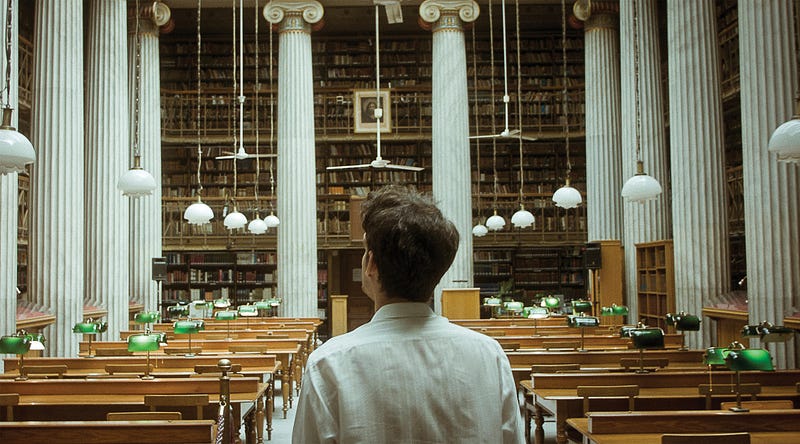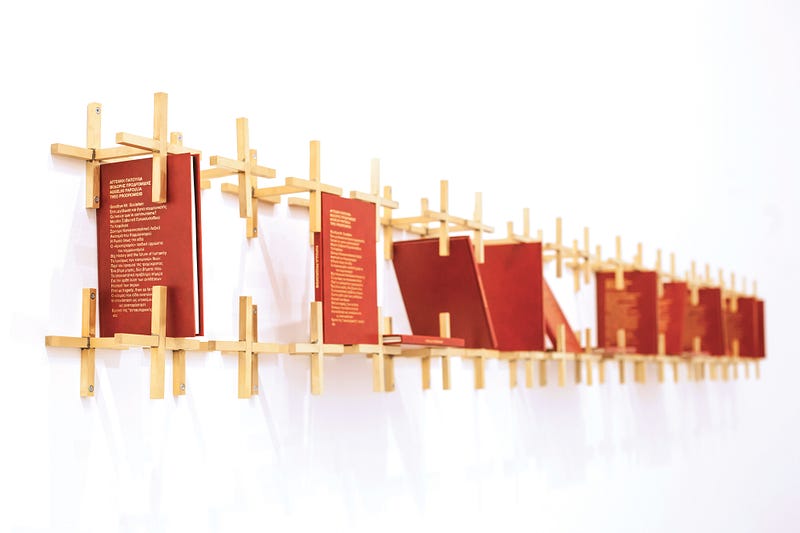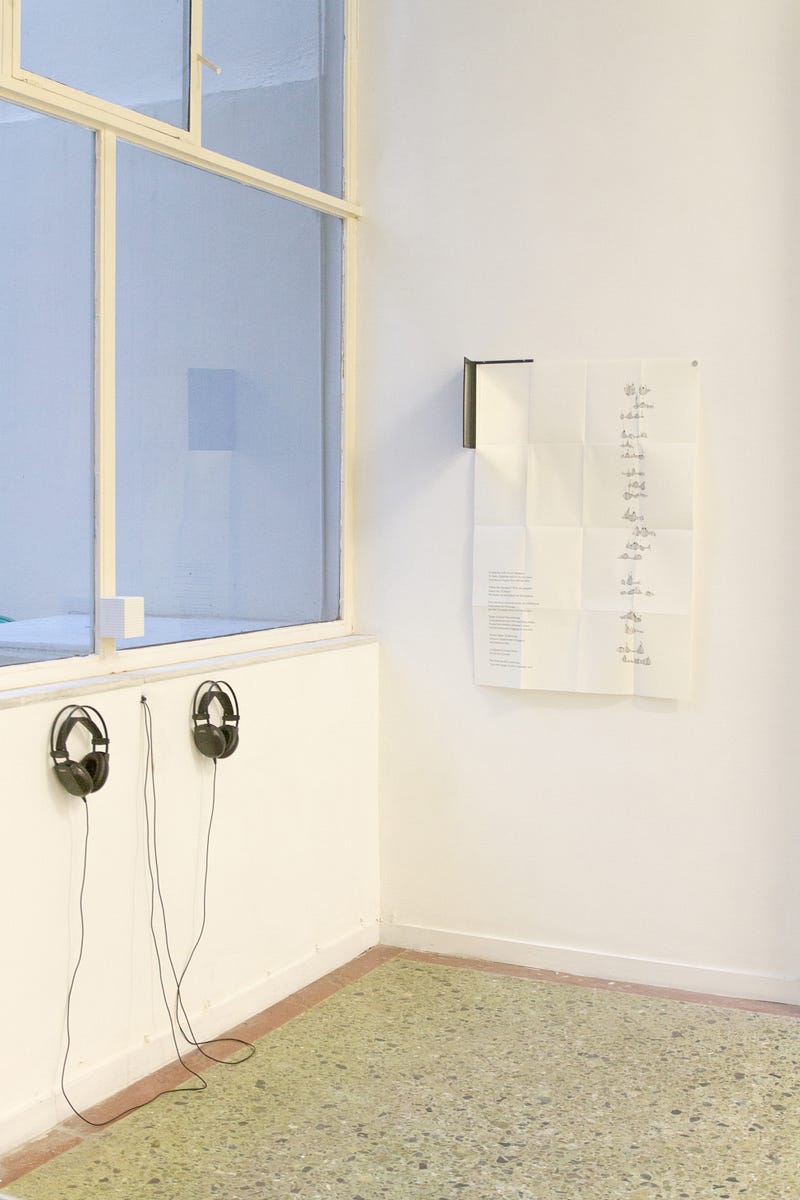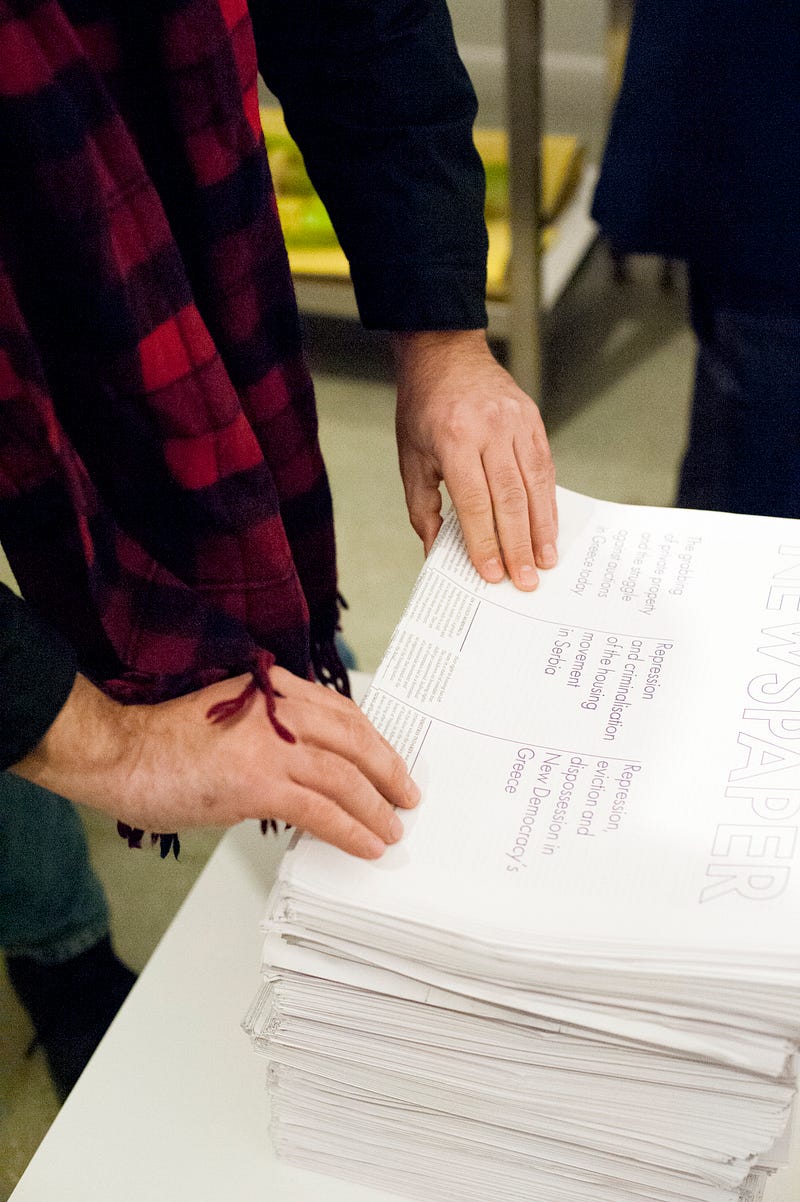04.11.2020
Thodoris Prodromidis and how art can extend beyond its boundaries
Εικαστικες Τεχνες
Γλώσσα πρωτότυπου κειμένου: Αγγλικά
“So someone would have to wait for the perfect society before daring to speak? Or perhaps speak while disguising their meaning. Or altogether assume the risk and speak in order to lie,” remarks the protagonist of Theo Prodromidis’ film Towards the Bank of the Future, 2013(2013). As bodily presence in the public sphere tragically reemerges as a right needing to be constantly reaffirmed, we are called on to invent new ways through which we will be able to speak about participatory, political or public art. What do we really mean, or what are we trying to disclose, when we talk about art taking on the notions of the political subject, everyday life or the very art of politics and its historicity? Within the framework of this inquiry, the need emerges to reflect these issues anew in a manner that would bypass a series of archetypal ethical questions, such as who has the right to speak and in which way, and would, instead, focus on the reality of things: what is the vocabulary that could include the excluded subjects. If we want to stop speaking ABOUT these subjects and comprehend the actual condition of being excluded, it is perhaps necessary to dedicate oneself to the study of art’s capacity to let the precarious subjects speak for themselves.

In Prodromidis’ video Towards the Bank of the Future (2013), we follow a writer-intellectual as he visits monumental spaces and monument-spaces across the city and witness his revelatory meeting with a Cavafian character. A film documentation that starts off as an endless questioning of the citizen’s place through time and space soon turns into a record of the subject’s agonising need to become included in a historicity weighing heavily down on his/her shoulders. What ethical measure can a person apply when assuming the responsibility to be actively present within his/her own time? What are the costs involved and which parts of them are levied on the individual? The video contains footage from Cairo during the Arab Spring uprisings, shot in 2011 by Mosireen, the independent media collective that came together to document and transmit images of the Egyptian Revolution. Mosireen’s bottom-up approach delivered archive footage that figures as cracks or traumas inflicted on the narrative of Prodromidis’ video. The real space of action comes to provide an answer -and perhaps at the same time pose a challenge- to the main character’s existentialist self-referentiality and to the moral mire into which he is plunged. Historicity itself provides the answer on our behalf: “Somebody is searching for the right words and cannot find them, that’s why you don’t know what to say”.

Still, a few years later, Prodromidis teams up with actress Angeliki Papoulia and does indeed try to find the right words in the course of two 8 hour-long performances presented at Kunsthalle Athena, which will form the basis for his new installation, Goodbye Etc. Element for the support of new structures (2015). Following an open call, the artist amassed a collection of journals and books containing emblems that marked the development of left-wing political discourse. The gathered texts were then torn and taken apart randomly — or not — before being reassembled in front of the audience. The objective: to create a new book out of the existing ones. The publication resulting out of Goodbye…Etc. Element for the support of new structures (2015) traveled widely: it was shown at the Thessaloniki Biennale of contemporary art and at the Fodazione Sandretto re Rabodengo, where it was presented as an installation without, however, disowning its performative origins. These archives, bound together into 16 bright red copies-objects, claim to forge their own relationship with the audience, which is invited to leaf through them, change their position or even try and remove them from the exhibition space. Both the archives and the visitors participate in a well-orchestrated and surprising choreography in order to shape, using chance and their own mobility as a vehicle, a new, sculptural common space. Fragments of texts that played a key role in the evolution of revolutionary and emancipatory politics and whose echo still reverberates strongly not just in contemporary discourses articulating political demands but also on people’s collective memory, for a moment cease to function as theoretical monuments and organically transform into the joints of a live mechanism calling for involvement and active participation. Rid of the burden of having to deliver a narrative at the end his archival research, Prodromidis explores the possibilities of a dialogue unfolding between the text and the architectural landscape, as well as the public space and the people inhabiting it. The fact that Goodbye etc. performs all of the above in the context of institutionally established cultural settings, such as the ones provided by modern art biennials, already intimated a clear orientation towards a bold artistic practice which, in the following years, would tap even more firmly into the problematics germinating within the axis politics-art-community.

In 2019, the work A poem as an image (Amartolo) lends a voice to groups deprived of one. Woman activists, members of collectivities, and female immigrants read Galateia Kazantaki’s poem “Amartolo” and their voice becomes the focal point of an installation presented at State of Concept gallery in Athens, in the context of an exhibition curated by the collectivity What, How and for Whom / WHW. “From the depths of my hell I scream to you: I am your image, society, and I resemble you”, are the words blurted out from the headphones, thus delivering a public performance, an attempt to claim visibility. The poetry of a woman persecuted for her political activities placed in the mouths of women fighting for their experience of femininity to be acknowledged within the realms of society turns into an almost corporeal assembly releasing an emotional charge akin to that of a public protest. Yet the sound of this installation did not find an outlet into the urban space, which is the natural setting of every collective action, but instead resounded only within the confines of a modern art project space. To what extent, then, did the project manage to circumnavigate the authority of the dominant discourse, so as to challenge it or at least break its continuity? Prodromidis has no illusions: he does not believe that art is capable of bridging the distance separating the exhibition space from the socio-political sphere. Instead, then, of proposing solutions he brings into relief the potential inherent in each moment: he probes into, shapes and delivers a temporary performative field that is conducive to solidarity and participation, a sphere through which inroads can be made into the public.

Pushing on with this peculiar attempt to own up to the artist’s privilege vis-a-vis the community, in March 2020, in the context of the exhibition Translocal Cooperation held in Furtherfield gallery in London, Prodromidis decides to contribute an edited volume featuring texts written by multiple authors. In the work An open newspaper (You can’t evict a movement) (2020), the result of his collaboration with Theodoros Karyotis, Tonia Katerini, Stathis Mitropoulos, Nemanca Pantovic and Ana Vilenica, Prodromidis sets himself the goal of publishing a newspaper gathering new texts discussing the protection of first residence and the movements against evictions. In this manner, he tries to welcome people whose housing rights have been thrown into precarity and the solidarity movements favourably inclined towards them into an area of the public sphere that usually remains barred to them. Most importantly, though, he does this without purporting that his own writings can represent the members of this community, his track record of advocating for social causes notwithstanding. As the editor of the publication, he instead invited grassroots activists as well as scholars studying the solidarity movements organised in recent years for the protection of the first residence in Greece and Serbia. In Theo Prodromidis’ work, political activism, solidarity and the notion of collective action are not embodied in the work but rather heard, seen and strengthened through the work of art, whose visibility and institutional support the artist uses as his instruments. I finish this article, the result of many meetings and conversations with the artist, less with a sense of ownership over it and more with the feeling that it is a piece of writing I have contributed to. And this feeling possibly best encapsulates the importance of producing something in a shared condition.
Theo Prodromidis (SNF ARTWORKS Fellow 2019) is a visual artist and film director based in Athens, Greece.
Christina Petkopoulou (SNF ARTWORKS Fellow 2019) is an independent curator currently based in Athens.



